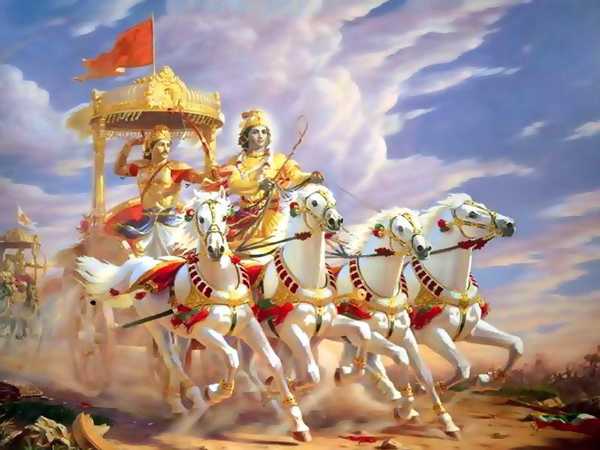Chapter 76

Yudhishthira said,–‘I bid farewell unto all the Bharatas, unto my oldgrand-sire (Bhishma), king Somadatta, the great king Vahlika, Drona,Kripa, all the other kings, Aswathaman, Vidura, Dhritarashtra, all thesons of Dhritarashtra, Yayutsu, Sanjaya, and all the courtiers, I bidfare well, all of ye and returning again I shall see you.”
Vaisampayana continued,–“Overcome with shame none of those that werepresent there, could tell Yudhishthira anything. Within their hearts,however, they prayed for the welfare of that intelligent prince.
Vidura then said,–The reverend Pritha is a princess by birth. Itbehoveth her not to go into the woods. Delicate and old and ever known tohappiness the blessed one will live, respected by me, in my abode. Knownthis, ye sons of Pandu. And let safety be always yours.’
Vaisampayana continued,–‘The Pandavas thereupon said,–O sinless one,let it be as thou sayest. Thou art our uncle, and, therefore like as ourfather. We also are all obedient to thee. Thou art, O learned one, ourmost respected superior. We should always obey what thou choosest tocommand. And, O high-souled one, order thou whatever else there is thatremaineth to be done.
“Vidura replied,–‘O Yudhishthira, O bull of the Bharata race, know thisto be my opinion, that one that is vanquished by sinful means need not bepained by such defeat. Thou knowest every rule of morality; Dhananjaya isever victorious in battle; Bhimasena is the slayer of foes; Nakula is thegatherer of wealth; Sahadeva hath administrative talents, Dhaumya is theforemost of all conversant with the vedas; and the well-behaved Draupadiis conversant with virtue and economy. Ye are attached to one another andfeel delight at one another’s sight and enemies can not separate you fromone another, and ye are contented. Therefore, who is there that will notenvy ye? O Bharata, this patient abstraction from the possession of theworld will be of great benefit to thee. No foe, even if he were equal tosakra himself, will be able to stand it. Formerly thou wert instructed onthe mountains of Himavat by Meru Savarni; in the town of Varanavata byKrishna Dwaipayana; on the cliff of Bhrigu by Rama; and on the banks ofthe Dhrishadwati by Sambhu himself. Thou hast also listened to theinstruction of the great Rishi Asita on the hills of Anjana; and thoubecamest a disciple of Bhrigu on the banks of the Kalmashi. Narada andthis thy priest Dhaumya will now become thy instructors. In the matter ofthe next world, abandon not these excellent lessons thou hast obtainedfrom the Rishis. O son of Pandu. thou surpassest in intelligence evenPururavas, the son of Ila; in strength, all other monarchs, and invirtue, even the Rishis. Therefore, resolve thou earnestly to winvictory, which belongeth to Indra; to control thy wrath, which belongethto Yama; to give in charity, which belongeth to Kuvera; and to controlall passions, which belongeth to Varuna. And, O Bharata, obtain thou thepower of gladdening from the moon, the power of sustaining all fromwater; forbearance from the earth; energy from the entire solar disc;strength from the winds, and affluence from the other elements. Welfareand immunity from ailment be thine; I hope to see thee return. And, OYudhishthira, act properly and duly in all seasons,–in those ofdistress–in those of difficulty,–indeed, in respect of everything, Oson of Kunti, with our leave go hence. O Bharata, blessing be thine. Noone can say that ye have done anything sinful before. We hope to seethee, therefore, return in safety and crowned with success.”
Vaisampayana continued,–“Thus addressed by Vidura, Yudhishthira the sonof Pandu, of prowess incapable of being baffled, saying, ‘So be it,’bowing low unto Bhishma and Drona, went away.”




